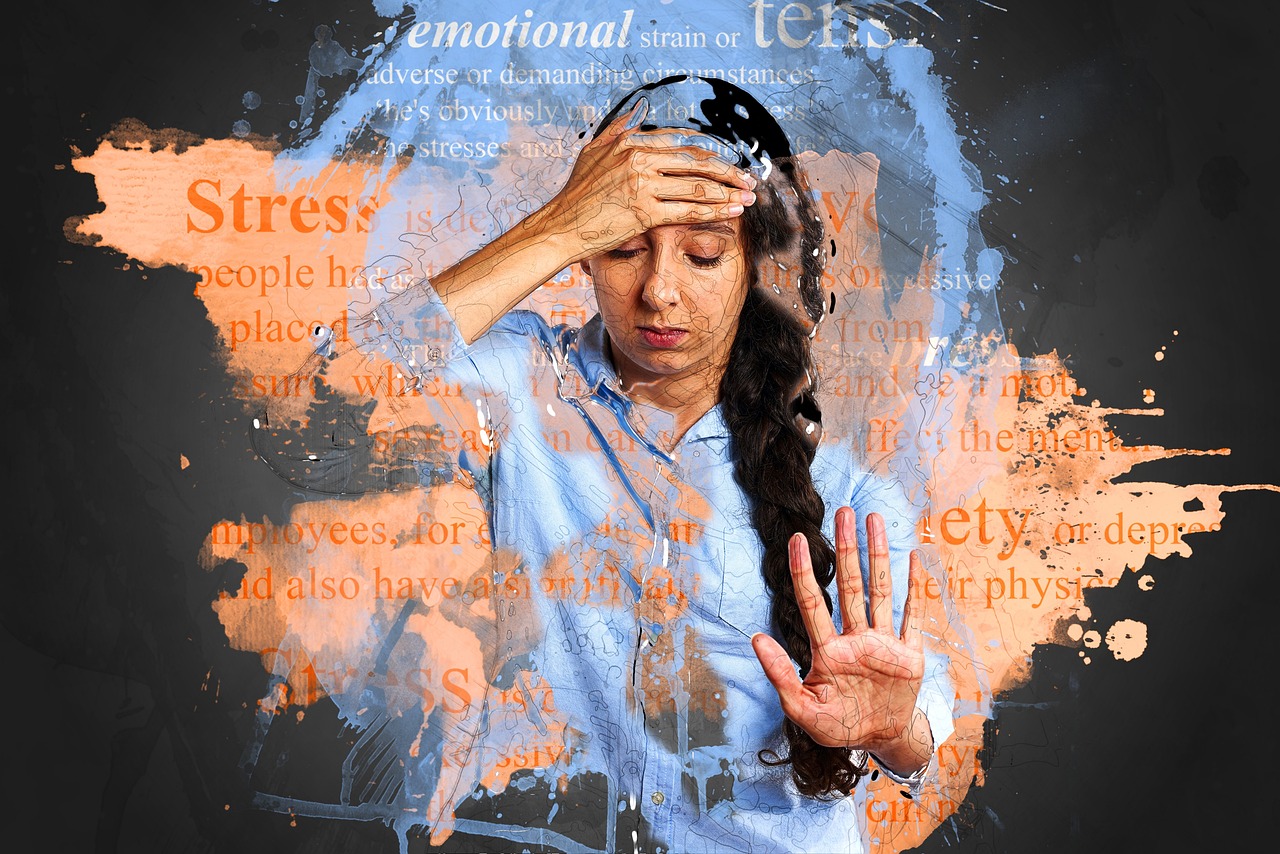Discover effective strategies for managing anxiety and depression in "Navigating the Storm Within." Explore mindfulness, physical activity, social support, and professional help to cultivate resilience. Transform your mental health journey with practical tools and insights that empower you to find peace amidst the chaos. Start your healing today!
Anxiety and depression can be a storm that plays in our head over and over again, always dark and stormy clouds in our mind. Yet, there is hope. But in the right context with better versions of the tools and strategies, one can survive this storm and experience clarity and serenity. Here, I look at seven large frameworks that can be valuable in the improvement of anxiety as well as depression, and provide a guide for you to regain ownership of your emotional territory.
1.Mindfulness and Meditation
This is a highly effective technique used to train people to pay attention to the present moment, and as we know, people with anxiety and/or depression should learn how to do that. The trick about grounding ourselves means that we are brought back to focus on the present time rather than to engage in ruminating and worrying, which compounds the feeling of distress. Self- compassion is the ability to acknowledge feelings and thoughts without labeling them as bad and instead separate them as temporary venum. For this reason, it is easy to find simple solutions like mindful breathing or body scans that may make a huge difference and reduce the burden of anxiety.
It is proved that through practicing being mindful, one is able to build up his emotional capital over time. Cultivating mindfulness practice leads to significant improvement of the gray matter at the brain that deals with a person’s modulation of emotion and stress. Through practicing mindfulness skills in daily life particularly possibly through guided meditations, mindful walking, etc ; we build a tool box helping us to deal more effectively with the internal storms.
2. Physical Activity
Exercise is among the powerful interventions in treating anxiety and depression since; it is easy to administer. Endorphin natural chemicals that increase mood, create well-being become released in our bodies during the exercise. Endorphin release is triggered by exercising, and this may be achieved by jogging, dancing or even walking, and react instantly to improve moods and reduce the anxiety rates impressively. This biochemistry can give one a natural E and a sense of accomplishment along with freedom from psychological pain. Depression and anxiety symptoms always tend to be improved through the practice of exercise, and more importantly, people become more optimistic in life. Physically active people have been identified to benefit from exercise by being able to deal with stressors effectively in their lives.
Performing some form of exercise improves the overall health of the human body and also gives the day’s schedule and meaning. Having an agenda of what exercises are expected within a given week whether it is to walk a certain amount, to participate in a yoga class on the week, or to try a new sport will also foster motivation and self-esteem. Once the positive effect of exercise is felt in the mental health part, the going gets easier to develop the healthy exercise habit in the long run. This structured approach in addition to building effective health culminates into the formulation of a disciplined and fruitful character. Subsequently, they shift a person’s perspective towards developing better physical habits and nurtures the concept of there being a connection between the two aspects: The physical aspects of the body and the emotional ones.
3. Healthy Nutrition
In matters of nutrition and mental health there is coordination; whatever we eat have a direct influence on our moods and feelings. Many foods rich in omega-3 fatty acids, antioxidants and whole grains should be taken as they help boost brain functions and improve mental health. The foods that have healthy fats should be prepared and consumed frequently as due to them, important nutrients that help in the reduction of anxiety and depression are obtained. Furthermore, as is well known, a proper diet reduces fluctuations in blood sugar and therefore stabilizes an individual’s moods and temperament leading to more normalized emotions.
People choose a healthy and tasty diet with anticipation, cooking, serving, and dining as a form of self-care. Eating mindfully in other words, consuming food knowledgeably without rushing will help improve our attitude towards the meals we take and will positively affect our health. Just as there are choices, we make about our food intake, by choosing foods which provide nutrients that fuel our bodies, mentally we decide on our mental health. Other examples of hedonic activities include cooking or preparing food because in addition to being functional, it can also be used as form of art therapy that requires one to be present fully. From such kind of a dietary perspective, the changes made can reap big fruits in the long run and offer a good platform towards developing a strong and stable defensive wall against emotional breakdowns.
4. Social Support
Another great importance of social relations is to develop and sustain interpersonal relationships in one’s life particularly when dealing with anxiety and or depression. Counselling can also involve appealing to the patrons with help available from friends and or family during difficult moments and struggles. Telling people about the things that go through you is a strong way of reducing isolation because it rationally makes you understand that you are the only one who is struggling. These connections build relations that give one a sense of being at home something that I found so comforting when I heard the sad news.
Even stating out what one thinks and how one feels can in of itself be a healing process. Admitting others helps you to offload as it relieves your emotional load. People are more likely to understand each other when they can say something at least, be it in casual talk or in an organized debate. Turning to other people may also improve your ideas, and you will be better able to deal with internal storms.
5. Therapeutic Techniques
CBT is a proven therapeutical model helping people to work through anxiety and depression efficiently. This method tends to concentrate on the maladaptive patterns of thoughts that cause emotional pain. Some major components of Cognitive Behavioral Therapy are the attempt to encourage clients to identify negative thought patterns, and teach them ways to alter such patterns to more rational patterns so that they attain better emotional management. CBT’s structured approach enables one to get practical methods that result in positive changes within and in the approach to life. Such one is often characterized by the process of providing an individual with specific goal and helping him work out the coping strategies, cognitive distortions, thus enhancing the person’s feeling of self-competency in handling the mental disorder.
Many of the learned skills in CBT can carry over beyond the therapeutic environment into the everyday life of the sufferer. Fortunately, cognitive restructuring can be done to manage thought processes and the development of coping mechanisms can be done to record a better control of upset response. This independence prepares them to fight problems facing them with more strength. So, one can agree with the importance of engaging in CBT as means to get strong tools to overcome the challenges of mental health and to find a way out of the storm. In addition to CBT session, one might be able to incorporate CBT in his or her daily life, so that the person can be able to deal with any anxiety zeitgeist as well as depressive cognitions.
6. Sleep Hygiene
It is crucial to have good sleep health especially by those people dealing with anxiety and depression. Putting the child to bed at the same time each day synchronizes the body’s natural timekeeping mechanisms and promotes more sound sleep. As the often referenced, Shangri-La joke goes: order where there is no order makes sense; routine helps to fight daily chaos. In essence, this routine serves as an emotional regulator, which can help prevent the exacerbation of a person’s highs or lows. Optimize the environment for sleep and try to sleep void of the disturbance of lights, use of phones or other loud noises. The environment tends to dictate how easily you fall asleep and how well you are going to sleep, so a relaxing environment will help you sleep.
Developing a routine that has to be followed right before sleep can improve your relaxation. Among them, reading, gentle stretching, or relaxation can be good ideas to make your body get ready for rest. Getting enough rest does not only help the physical body but also enhances optimal brain performance, and control of emotions. Lack of sleep worsens the conditions accompanied by anxiety and depression, it starts to feel like there is no way out. In return your money helps you get the strength and focus to deal with anxiety or depression, improving your emotional well-being.
7. Professional Help
The role that comes next is getting professional help because anxiety and depression are disorders that shouldn’t be treated without the help of a specialist. A competent therapist will always offer you counseling services depending on your personal experiences. As a form of counselling therapy lets one express what he/she feels and then look at ways on how to manage the feelings. It could take a while to find a therapist that is suitable, so what is needed is someone who can relate with you. Whenever it is an individual therapy, group classes, or secondary programs, people can work miracles and change the path toward a healthy mind and soul. That process, the relationship that develops between the client and the counselor, is also beneficial to the betterment of the client.
For some people, taking a drug maybe the only way of treating anxiety and depression disorders.] Speaking to a healthcare provider allows you to discuss possibilities that meet your preferences. Medication can relieve severe symptoms, and give a person a better chance at participating effectively in therapy and other aspects of self-care. Patients should be willingly accepting of medication management because getting the best medication and right dosage can take some time. Addition of medication with therapy alongside other lifestyle modifications always come out as an effective plan that can help you manage the storm within this life season.
Conclusion
It can be very hard to sail through the storm inside and using these tools can open up channels for a smoother journey ahead even though you are not alone in this journey. Every action you make in a day through practicing mindfulness, engaging in exercise, and reaching out for support in distressing moments builds your protective factors and mental health. If you or someone you care’s about is struggling with anxiety or depression, consider checking out these tools today; begin with baby steps, and talk to a friend, and begin the process of healing now. We also bring in good news that ‘we are in this together’ because your journey to healing starts now and you will come out even stronger after this storm.


























